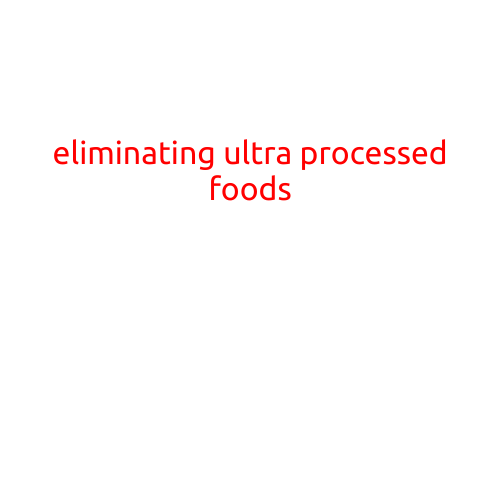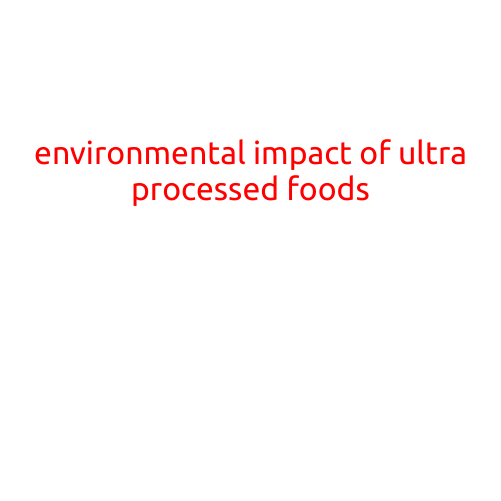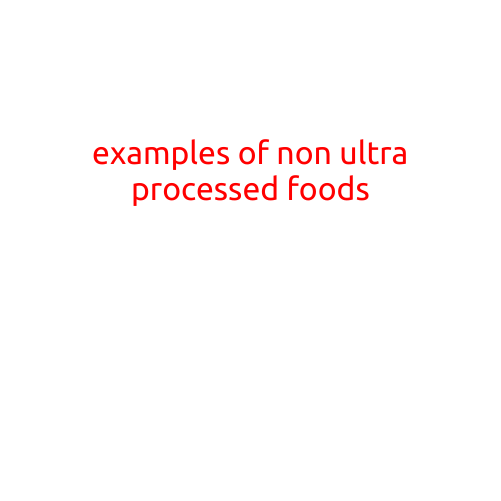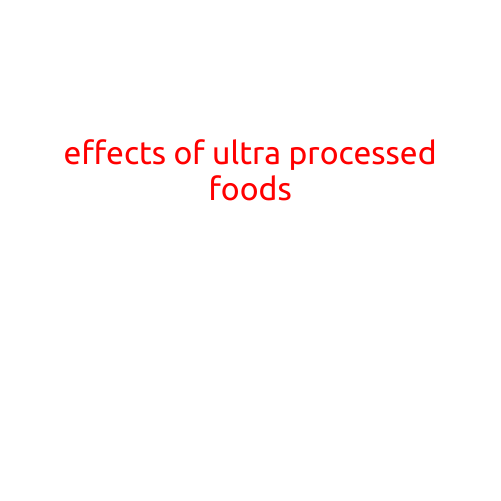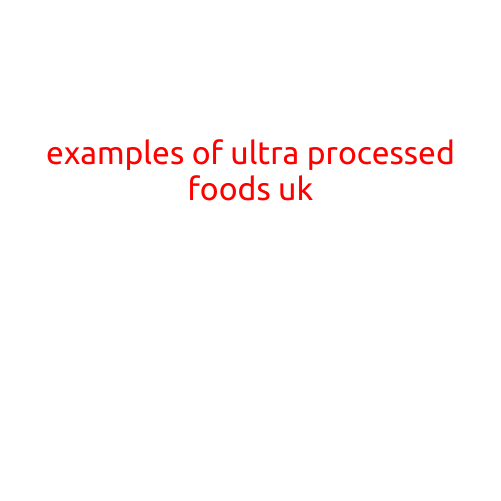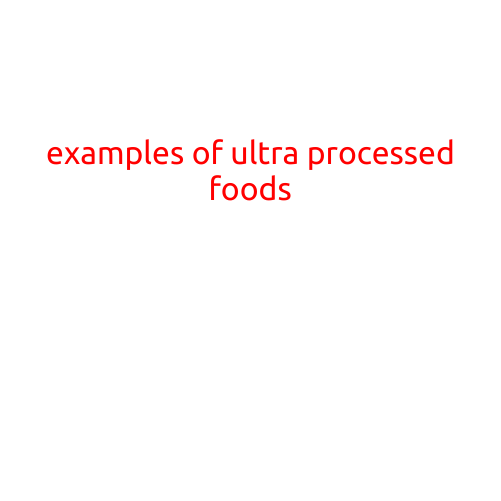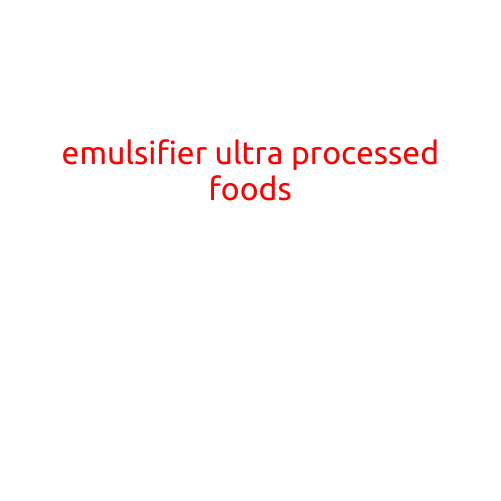
Emulsifier: The Hidden Ingredient in Ultra-Processed Foods
modern food landscape is filled with ultra-processed foods, which are made from a combination of natural ingredients, additives, and processing aids. Among these additives, emulsifiers are a common ingredient used to enhance the texture, shelf life, and appearance of these foods. In this article, we will explore what emulsifiers are, how they are used in ultra-processed foods, and the potential concerns surrounding their use.
What are emulsifiers?
Emulsifiers are substances that can mix together two or more liquids that don’t normally combine, such as oil and water. They work by reducing the surface tension between the liquids, allowing them to blend together smoothly and evenly. Emulsifiers can be found naturally in foods such as eggs, milk, and honey, but many commercial foods also contain synthetic emulsifiers.
How are emulsifiers used in ultra-processed foods?
Ultra-processed foods often contain a combination of natural and artificial emulsifiers. These emulsifiers may be used to:
- Improve the texture of foods, such as making yogurt smooth and creamy or helping to bind ingredients together in a cake.
- Enhance the shelf life of foods, by preventing the growth of bacteria and other microorganisms.
- Improve the appearance of foods, such as making margarine look like butter.
Examples of ultra-processed foods that may contain emulsifiers include:
- Breaded and fried foods, such as chicken nuggets and french fries
- Vegetable oils and margarines
- Processed meats, such as hot dogs and sausages
- Sugary snacks, such as cakes and cookies
- Sauces and condiments, such as mayonnaise and ketchup
Some common emulsifiers used in ultra-processed foods include:
- Titanium dioxide (TiO2), a white pigment used to improve the appearance of foods
- Polysorbate 80 (Tween 80), a synthetic emulsifier used to blend oil and water together
- Lecithin, a natural emulsifier derived from soybeans or eggs
- Carboxymethyl cellulose (CMC), a synthetic emulsifier used to improve the texture of foods
Potential concerns surrounding emulsifiers
While emulsifiers can enhance the texture, shelf life, and appearance of ultra-processed foods, there are some potential concerns surrounding their use. Some of these concerns include:
- Potential health effects: Some emulsifiers have been linked to potential health problems, such as allergic reactions, digestive issues, and even certain cancers.
- Environmental impact: The production and disposal of synthetic emulsifiers may have negative environmental impacts, such as contributing to pollution and waste.
- Lack of regulation: While some countries have regulations governing the use of emulsifiers in foods, others do not, which can lead to inconsistent labeling and potential safety concerns.
Conclusion
Emulsifiers are a common ingredient used in ultra-processed foods to enhance their texture, shelf life, and appearance. While they can provide some benefits, there are also potential concerns surrounding their use, including potential health effects, environmental impact, and lack of regulation. As consumers, it is important to be aware of the ingredients in the foods we eat and to make informed choices about the products we purchase.
